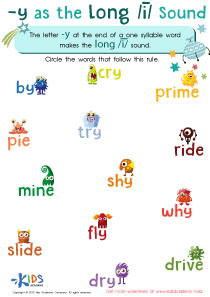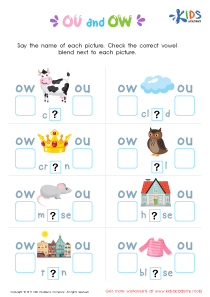Vowel Recognition Long Vowels Worksheets for 5-Year-Olds
4 filtered results
-
From - To
Enhance your child's reading skills with our engaging Vowel Recognition Long Vowels Worksheets for 5-Year-Olds. These carefully crafted worksheets are designed to help young learners identify and understand long vowel sounds through fun and interactive activities. With eye-catching visuals and age-appropriate exercises, each page offers a delightful learning experience to boost phonemic awareness. Perfect for early grade students, these worksheets provide a solid foundation for reading fluency and confidence. Ideal for both classroom use and at-home practice, our comprehensive resources will make vowel recognition an enjoyable and rewarding process for your little one. Get started today!
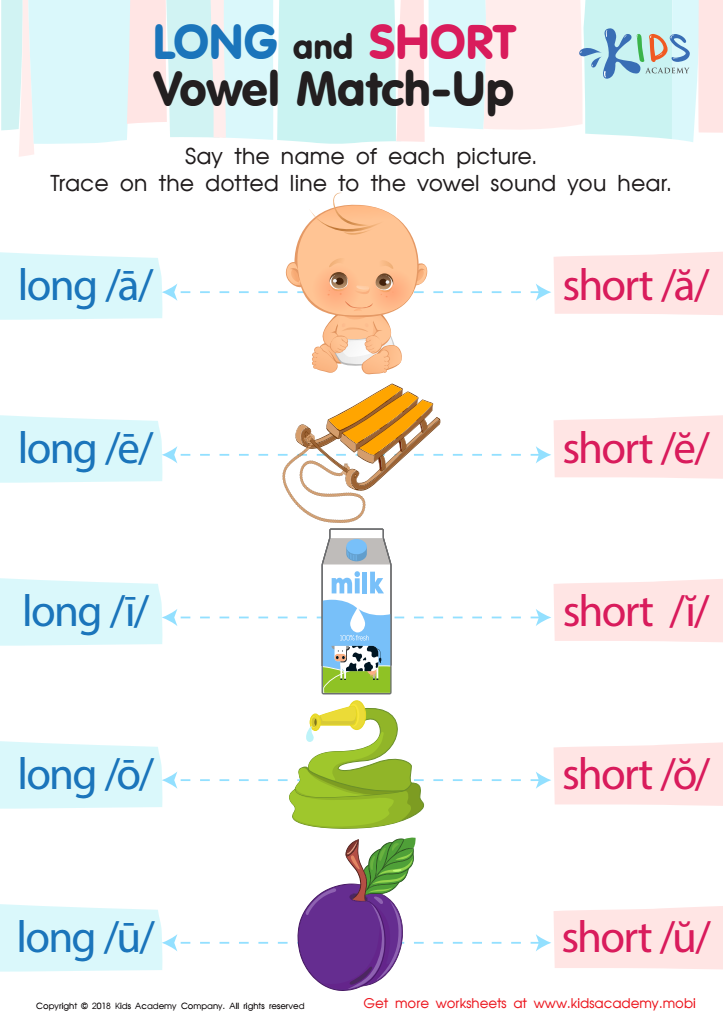

Long and Short Vowel Match up Reading Worksheet
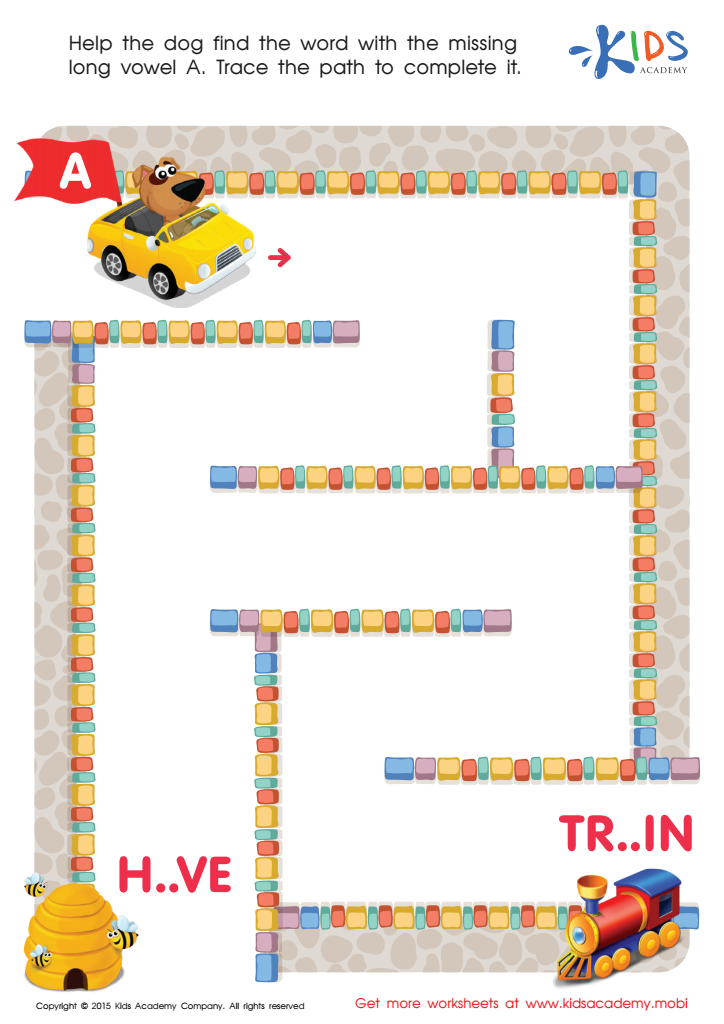

Long Vowel Sound A Worksheet
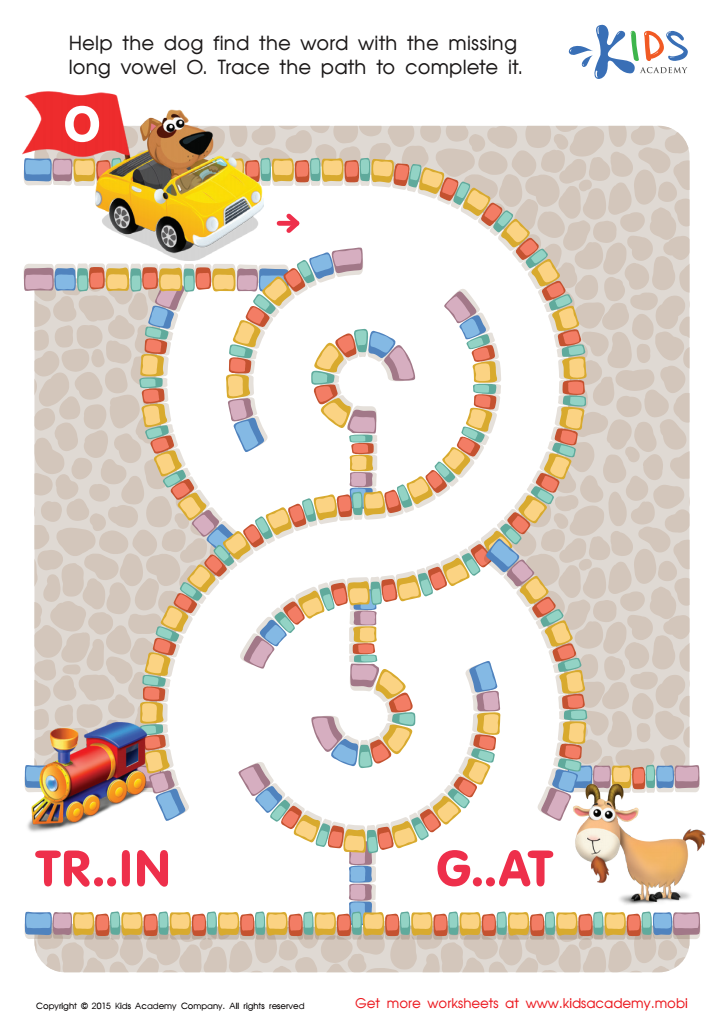

Long Vowel Sound O Worksheet
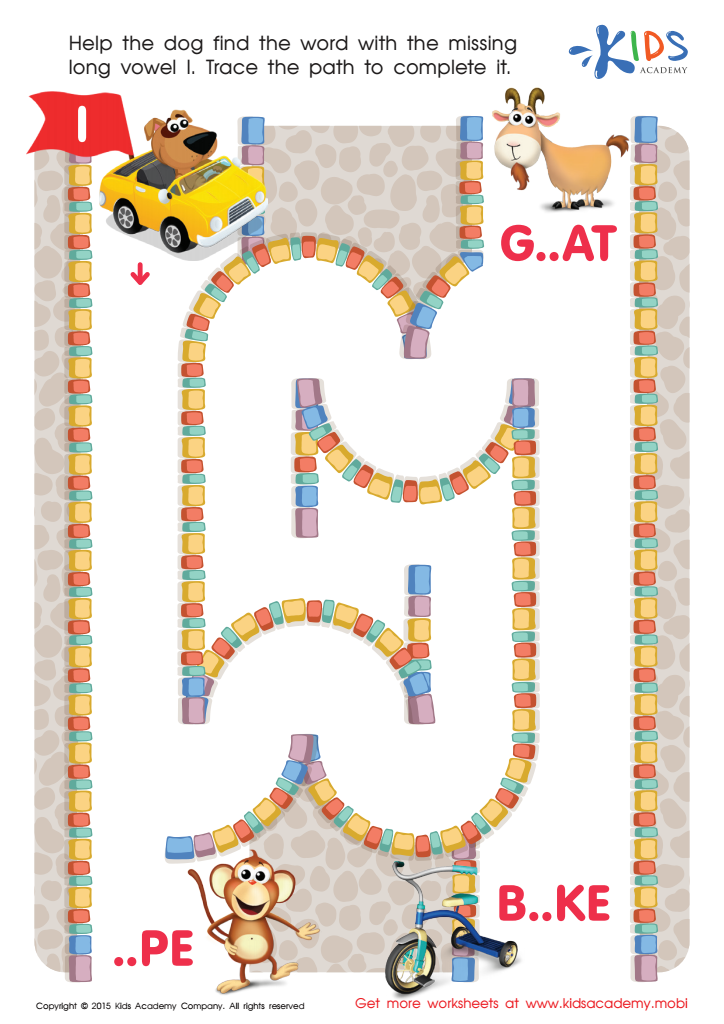

Long Vowel Sound I Worksheet
Vowel recognition, particularly long vowels, is essential for 5-year-olds as it forms the cornerstone of their reading and language development. Mastering long vowels enables children to accurately decode words, improving their reading fluency and comprehension. Recognizing long vowels helps them understand how different vowel sounds affect word meanings, aiding in vocabulary expansion and usage.
For parents and teachers, focusing on long vowels equips children with the tools to become proficient readers, thus fostering a love for reading and learning. Early reading skills are linked to future academic success and literacy; children who grasp vowels early tend to excel in later grades. Moreover, phonemic awareness, which includes vowel recognition, enhances children's ability to spell and write, as they understand the relationship between sounds and letters.
Engaging 5-year-olds in vowel-based activities — such as phonics games or interactive read-alouds — can make learning collaborative and fun, promoting both confidence and curiosity about language. Ignoring vowel recognition might lead to reading difficulties, affecting a child's self-esteem and interest in academics. Thus, prioritizing long vowel recognition ensures children have a solid foundation in their formative years, setting them up for literacy success.

 Assign to My Students
Assign to My Students








